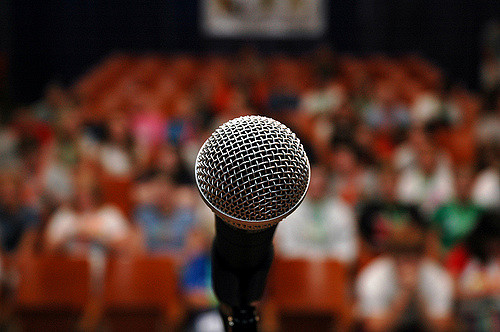
This week’s portion begins with the event that merits the title of the book – Exodus. The Jews finally are chased from Egypt. Hastily, they gather their meager possessions and with the gold and silver that the Egyptians miraculously gave them they flee.
But one of them, their leader no less, does not take gold and silver. He takes Joseph’s bones. The Torah tells us why. Decades prior, Joseph beseeched his children, “pakod yifkod – G-d will surely remember you and you shall bring my bones up with you out of here” (Genesis 50:25).
Slavery can make one forget commitments – especially about old bones. However, despite more than a century of servitude, Moshe kept the promise. What baffles me is the wording of the request and its fulfillment. Why did Yoseph juxtapose the words “pakod yifkod” (G-d shall remember) with the petition to re-inter his bones? It is repeated in this week’s portion. “Moshe took the bones because Joseph said that pakod yifkod – G-d will remember you and bring my bones up” (Exodus13: 19).
It is wonderful that Joseph assured redemption, but is that the reason Moshe took the bones? Didn’t he take the bones simply to fulfill a commitment to Joseph? What does pakod yifkod have to do with it? Why is it inserted in both the request and response?
Twelve years ago, our Yeshiva established an audio Torah tape library. I looked in the Yellow Pages and found a company that sold tape labels. A very knowledgeable representative took my call. Clearly Jewish, she had a Brooklyn accent, and spiced her words with some Yiddish expressions. I felt comfortable dealing with someone who I believed, knew about Jewish institutions. I said I would call her back and asked for her name. She answered proudly, “Esther.” “Last name?” I inquired. After a brief pause, I received an answer that surprised me. “Scatteregio.”
” Scatteregio?” I repeated in amazement. Stepping where perhaps I should not have, I explained my perplexity. “Actually,” I offered, “I was expecting Cohen or Goldberg.” She paused, “you are right, I am Jewish and my first husband was Goldman.” Another pause. “But now I’m remarried, and its “Scatteregio.” She took a deep breath. “But I have a Jewish son, Rick, and he really wants to observe. In fact, he wants me to allow him to study in an Israeli Yeshiva.”
I knew that this was not destined to be a telephone call only about tape. For half an hour, I talked about the importance of Yeshiva, and how Rick could be her link to her past and connection with her future. I never knew what kind of impact my words made. I remember leaving my name and talking about my namesake’s influence on an Esther of yesteryear. I ended the conversation with the words “Esther, es vet zain gut!” (Yiddish for it will be well!)
Ten years later, during the intermediate days of Passover I took my children to a local park. Many Jewish grandparents were there, watching the next generations slide and swing. An older woman wearing pants and smoking a cigarette was holding the hand of a young boy who was wearing a large kipah and had thick payos (sidecurls). As one of my children offered to play with the little boy, I nodded hello and smiled. With tremendous pride, she began talking about her grandchildren. “Do you know my son Reuvain? He was studying in a Far Rockaway yeshiva until now and just took a job in the city.” “Wonderful,” I said, “but I don’t know your son.” She told me about the struggles of making a living, and I had no choice but to listen and smile. Instinctively I responded, “Es vet zain gut!” Things will be fine. Her eyes locked on me. She stared in disbelief.
“Mordechai?” “Esther?” We just shook our heads in disbelief, and to my amazement, she told me that Rick did go to Yeshiva, these were his children, and they were truly her nachas (pride and joy).
I never will know if my words helped turn Rick into Reuvain, but I am sure that the words, “es vet zain gut” assuring someone that things will be all right, was a statement not easily forgotten.
When Yoseph made his children promise that they will take his bones with them, he added an assurance. He promised them that G-d would surely remember them. Even Hashem, appearing to Moshe said, “pakod pakadti,” “I have remembered” (Exodus 3:16). Yoseph, too, requested to be remembered. Two hundred years of slavery can take an awful toll on people. It can make them give up their pride, it can make them forget about family, it surely it can cause them to forget about bones. But when requests are linked with comforting words, they endure. Moshe took Yoseph’s bones because they were linked with words of reassurance that remained an anthem of the Jews in exile, “G-d will remember you.” And Moses remembered, too.
Copyright © 1998 by Rabbi M. Kamenetzky and Project Genesis, Inc.
If you enjoy the weekly Drasha, now you can receive the best of Drasha in book form!
Purchase Parsha Parables – from the Project Genesis bookstore – Genesis Judaica – at a very special price!
The author is the Dean of the Yeshiva of South Shore.
Drasha is the e-mail edition of FaxHomily, a weekly torah facsimile on the weekly portion
which is sponsored by The Henry and Myrtle Hirsch Foundation
Books by Rabbi Mordechai Kamenetzky:
 |
 |


